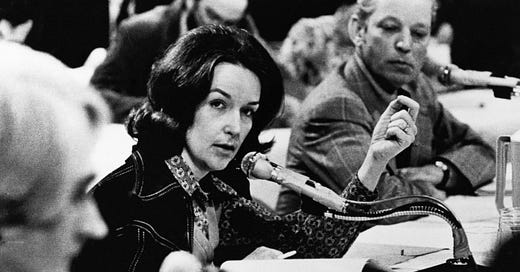Good morning, subscriber!
On Monday, while walking with a friend, I asked how she’d assess her 2022 so far. She responded with hmm, whoa, sheesh, oi which, conveniently, sums up how I feel about the rest of the year, particularly the upcoming election season. In anticipation of the inevitably nasty battles to come (eek), I thought I’d review the origins of GOP attacks on diverse curricula.
If the 2021 governor’s race in Virginia is any indication, we’re bound to see these tactics in the months ahead. Last October, as part of his closing argument in a tight battle with Democrat Terry McAuliffe, Glenn Youngkin published an ad featuring Laura Murphy, who in 2013 sought to ban Toni Morrison’s novel “Beloved” from Fairfax County Public Schools. Murphy’s son, who read the book as a high school senior in an AP English class, said it was “disgusting and gross” and gave him night terrors. In the ad, Murphy says that, unlike McAuliffe, Youngkin “listens. He understands. Parents matter.” It seems they stopped recording just before she added, “vote Youngkin, he’ll give us a break from our shrieking sheltered children!”

Youngkin’s advertising worked—he narrowly won the election by 60,000 votes out of over 3,000,000 cast—and his featuring of a mom attacking a Black author was no accident. The blueprint for this thinly-veiled racist mommy strategy, “and for the nationwide debate over how race is taught in schools,” adds journalist Sarah Posner, is rooted in one woman’s battle against textbooks in West Virginia’s Kanawha County.
To see how, let’s head back to the years following Brown v. Board of Education.



